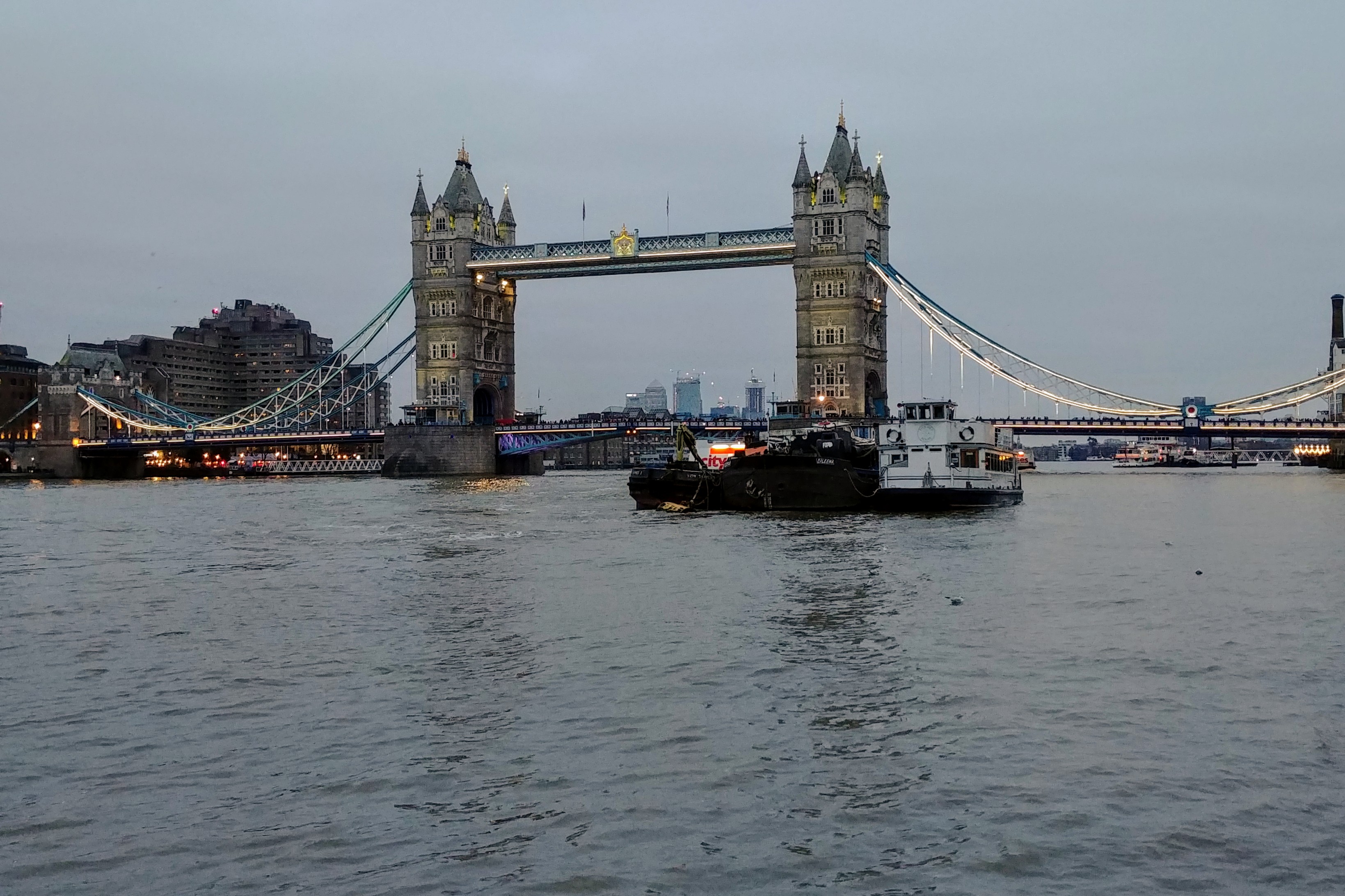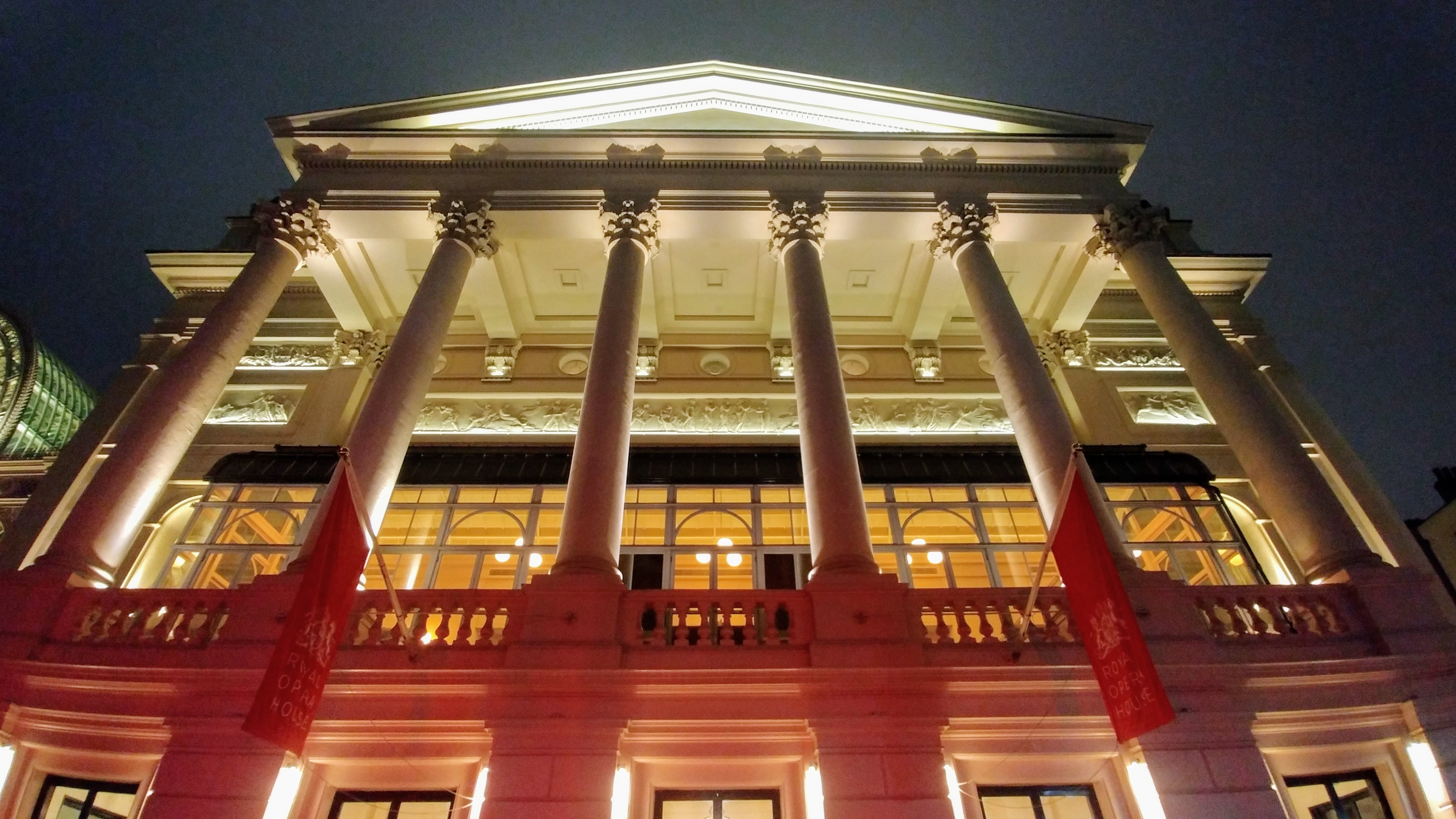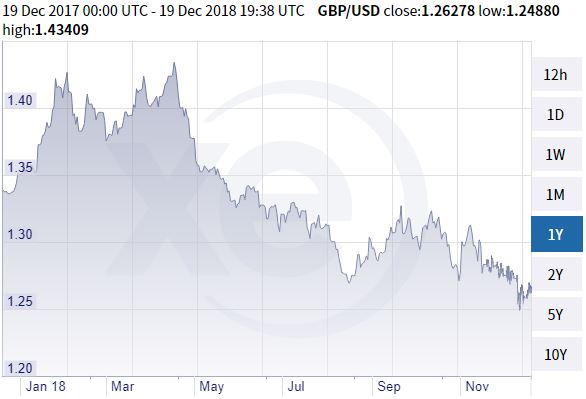The UK Met has kept temperature records since 1910, and in all that time, London has never experienced a warmer day in winter than yesterday:
Temperatures in Kew Gardens, south-west London, reached 21.2°C, breaking the record for the warmest February day. The Met Office defines winter from the beginning of December to the end of February, so Tuesday’s sunny spell is also a winter record.
The record had already been broken on Monday, when temperatures exceeded 20°C during winter for the very first time. This week’s unseasonably warm weather differs dramatically from the beginning of the month, when sub-zero temperatures were recorded across the country.
The previous winter record had been 19.7°C in Greenwich, south-east London, in 1998.
“The average temperature for this time of year is 9°C in London and 9°C in north Wales, so what we’re seeing is Δ9°C degrees above average,” said Martin Bowles, a Met Office meteorologist.
Bowles said: “We can’t blame climate change directly because we’re talking about weather, not the climate. But it is a sign of climate change. There’s been a gradual increase of temperatures over the last 30 years so the extreme weather has also been increasing.”
Parts of Britain on Tuesday were hotter than Malibu, Athens, Crete and Barcelona.
The warmest day I ever experienced in London was in August, 2009, when the temperature hit 31°C. Yesterday was almost that warm, and August is still six months out.
Can't wait to see what the summer is like.
...will be to Bletchley Park:
The National Museum of Computing is a must-see if you are ever in the UK. It was a short 30ish minute train ride up from London. We spent the whole afternoon there.
There is a rebuild of the Colossus, the the world's first electronic computer. It had a single purpose: to help decipher the Lorenz-encrypted (Tunny) messages between Hitler and his generals during World War II. The Colossus Gallery housing the rebuild of Colossus tells that remarkable story.
We saw the Turing-Welchman Bombe machine, an electro-mechanical device used to break Enigma-enciphered messages about enemy military operations during the Second World War. They offer guided tours (recommended as the volunteers have encyclopedic knowledge) and we were able to encrypt a message with the German Enigma (there's a 90 second video I made, here) and decrypt it with the Bombe, which is effectively 12 Engimas working in parallel, backwards.
I wanted to understand the computing power these systems had then, and now. Check out the website where you can learn about the OctaPi - a Raspberry Pi array of eight Pis working together to brute-force Engima. You can make your own here!
Yes, there's a Raspberry Pi Enigma-cracker. If only we'd had one in 1940...
The Times provides a bit of colour about the Speaker of the House of Commons, who earlier this month broke precedent to force the Government to accept more control from Parliament:
The outside world rarely takes much notice of the speaker of the House of Commons, a nonpartisan and typically low-profile figure who presides over parliamentary debates. But Britain’s last-minute paralysis over exiting the European Union, or Brexit, has made Mr. Bercow into a kind of celebrity.
With less than 10 weeks left before the country is set to leave the bloc, he has broken precedent by wresting some control over the Brexit decision-making from Prime Minister Theresa May, allowing Parliament to act to stop the country from leaving without a deal.
This has won him the admiration of Europeans — a French radio station named him “European of the Week.” Clips of his signature cry, “Order, Order!,” have gone viral on social media.
“From a political geek’s point of view, it was pretty astonishing,” [said Bobby Friedman, the author of a biography of Mr. Bercow] of Mr. Bercow’s decision. “He said, ‘I’ll do what I like.’ If anyone else was speaker, it would have been incredibly surprising. With him, not particularly.”
Bercow is quite amusing to watch as he castigates members of all parties for, among other things, “chuntering from a sedentary position ineloquently and for no obvious purpose.” Watch PMQs any week; he's as much of a character as either the PM or the Leader of the Opposition.
He has signaled that he will step down sometime this year.
The much-anticipated vote in the UK House of Commons on Theresa May's Brexit deal failed by a spectacular 432-202 vote. Opposition leader Jeremy Corbyn has called for a vote of no confidence, which could lead to elections before the end of February:
In her final appeal in Parliament, Mrs. May impressed on the lawmakers the importance of the vote facing them. “The responsibility on each and every one of us at this moment is profound,” she said, “for this is a historic decision that will set the future of our country for generations.”
Like most others, though, the prime minister has no easy answers about the way forward. She has signaled that she will appeal to the European Union in Brussels for concessions and try again to win parliamentary approval, but the bloc is unlikely to grant her any.
With no consensus behind any one pathway, and a vanishing window for further negotiation, more radical solutions are rising to the fore.
One group of lawmakers is campaigning for a repeat referendum, which could overturn the mandate to leave, and another favors leaving the European Union on March 29 without a withdrawal agreement, a move that experts warn could lead to shortages of some foods and an economic downturn.
“This is probably the most important piece of legislation for decades, and the executive can’t get it through,” said Tim Stanley, a columnist for The Daily Telegraph. “It’s a very dramatic moment.”
The problem, of course, is that almost no one has told the British public the complete truth about Brexit. Some British believe that crashing out of the EU will solve all their problems; of course, none of those people is an economist.
I can't see how the Tories, let alone May, survive this. But no one has an idea that can pass Commons right now. If Britain just leaves the EU without a deal...whoo boy. But that horrific possibility just became significantly more likely today.
I wish I could stay longer. London in winter isn't so bad. But I'm sure I'll be back in a couple of months.
Meanwhile, I need a nap. I've got an 8-hour flight to take it on.
Jennifer Finney Boyan explains the English tradition, along with its Irish counterpart:
In England, it’s Boxing Day; in Ireland and elsewhere, it’s St. Stephen’s Day. When I was a student in London, my professor, a Briton, explained that it was called Boxing Day because it’s the day disappointed children punch one another out.
For years I trusted this story, which only proves that there are some people who will believe anything, and I am one of them.
The real origins of Boxing Day go back to feudal times, when workers on a lord’s estate would ask, on this day, for a Christmas box, in exchange for good service throughout the year. Later, the tradition expanded to include the collection of alms for the poor.
In Ireland, St. Stephen’s Day brings the appearance of the Wren Boys— costumed revelers engaged in a ritualized hunting of a wren. The best-known Wren parade happens in Dingle, in County Kerry. There’s a lot of marching around and collecting of money, some of which goes to charity and some of which — according to at least one of my Irish friends — goes to pay for a round at the pub. The veneration of the wren predates Christianity, in fact: The Irish word for wren, “dreoilin” — comes from two words, “draoi ean,” the druid bird.
In London on this Boxing Day, few stores have opened, but at least the Tube has resumed a normal schedule. And, of course, the sun hasn't come out from behind the low overcast all day. Perfect British winter weather.
After an amazing dinner at One Aldwych this evening, I grabbed a book from my room* and headed down to my own hotel's bar. Between the two places I met people from Italy, Spain, Cape Verde (via Portugal), Germany, Russia, Poland, Sardinia (yes, a part of Italy), and Wales (yes, a part of the UK).
London has made itself over the past two decades into this kind of mixed, cosmopolitan, vibrant city. I hope it continues; Brexit could kill it. So I'm glad I'm visiting now while it's at peak international. (The $1.27-to-£1 exchange rate doesn't hurt either.)
More photos. First, it was the best of Thames, it was the worst of Thames (compare with this one):

Second, the other side of St Pauls, along with yours truly and a pint of Beavertown Brewery Neck Oil Session IPA, at Founder's Arms on the Queen's Walk:

Finally, one of the greatest cultural centers in modern Europe, the Royal Opera House in Covent Garden:

And now, as my body thinks it's just coming up on 4pm, I will take yet another walk. London is a beautiful city; there's little I like more than just exploring it.
*An excellent and personally-relevant history of urban "renewal" in the Lincoln Park neighborhood of Chicago called The Battle for Lincoln Park.
I've arrived safely in the Ancestral Homeland, and as my body will tell you, it's too early to text anyone back home to let them know.
Right now I plan to sleep. Assuming I wake up sometime today, I'll get some caffeine, possibly a bite, and then walk around my second-favorite city in the world for a bit, aiming to queue up for St Paul's midnight service sometime around 22:30. (I might also try to get in to the Christmas carol service at 16:00; haven't decided yet.)
I'm heading to the Ancestral Homeland in a few days, and this chart is a veritable Christmas present from the Brexit idiots:

The last time Sterling was this low was Christmas 2016—the last Christmas I was in London.
Thank you, Boris Johnson, and your tourist-friendly policies.